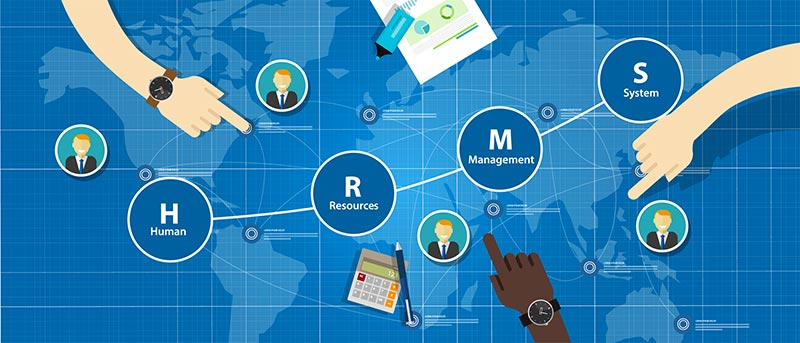
Every organisation should have a strong human resources department that could help the organisation bring in new talents and helps the business in achieving organisational goals. To be able to achieve this, the department needs the right set of process, a system in place that not only automates their process but also frees up time for the HR to focus on an important task. That’s where an HR software comes up that not only automates the entire hire to retire process but also manages the human resource at one centralised location which not only saves times and also saves huge capital of the company. But just having HR management software for your business is not enough, you need to find the right modules and functions to help streamline your core business process that is in line with your business goals.
Here are some key features that you should definitely look for when looking for HR software in the market.
Recruitment Management
In most cases, new employees leave their jobs within 45 days, if they are not satisfied with the recruitment process. Employees are the most important aspect of any business, and it can be difficult to reach your goals without the right employees in the business. Therefore, you need to find a tool that includes a recruitment management module. This module helps the company to smooth the process of hiring, from finding the right candidate for success. This module can also be integrated with job portals and automating the application and recruitment process.
Onboarding
Once you find the right candidate for the position, it is important to maximize their onboarding experience. Most new employees should be familiar with the staff and the business process at the outset. Automating your onboarding process help streamline your new employee process and get them working on the first day at the job. The software allows the new employee to track their process, submit documents and policy-signoffs and minimizes any confusion at the outset and enables employees to understand and find all the information they need about the organisation.
Performance Management
It is essential to monitor and manage the performance of every employee. An annual performance review is not enough because you cannot find out the exact reason why an employee’s performance is improving or falling. However, with HR performance management software, you can easily track the performance of each employee on a regular basis and also give feedback on it. This software can also help with annual performance reviews because you have the right data to know how an employee has done in a year. You can also monitor performance, collect feedback, and initiate a performance improvement plan for your low-performing employees. They are also able to track your high performing employees who are at a higher chance of leaving the company and retain them.

Workforce Management
If you are looking for a module that allows you to manage the various schedules within your organisation, you should get a workforce management module. However, this module needs to be integrated with others such as customer relationship management and employee attendance module to be able to track the daily activity of the workforce.
Attendance Management
Time theft is a common thing that businesses and HR have to deal with this kind of activity in every organisation when they don’t have effective HR management software. That’s why it’s essential to have an attendance management module once you get the HR software. This allows you to automatically track and record employee attendance, their daily clock-in and clock-out, leaves they are taking and overtime if any. And this module can be integrated with payroll management, which automatically processes employee salary by calculating employees’ working hours and leaves.
Talent Management
Attracting and retaining great talents is the success of any organisation that’s why when you are looking for new HR software for your business, talent management module should be one of your priority. The ability to attract and retain new and existing employees in your organisation is important. This module will help you optimize employee retention. HR can review the progress of the employee right from day one and understand the process to chart out the best career path for the business. Talent management module also provides a 360-degree feedback option which allows collecting feedback from different stakeholders within the organisation.
Learning Management
Skill gaps that exist in different departments often hamper the growth of the companies and prevent them from reaching their goals. The Learning Management module can be very helpful in bridging this skill gap. This tool provides employees with development opportunities, help acquire new skills and polish their existing skills and also help improve engagement. The higher the engagement, the more motivated the employee is to work and the higher the employee retention rate.
HR Analytics
None of the above modules in HR software will help if you don’t have the data you need for each. That’s why HR analytics is an essential module for every business. It gives you the opportunity to study every business process and every employee in detail. HR analytics module provides data that help the company reduce talent scarcity, improve the hiring process, provide better employee insights and improve employee engagement.

If your organisation is not using an HR Software than it will be a good opportunity to investigate and leverage this software, this software will give you unstructured, disparate a more and better holistic picture of your organisation health, employee engagement, cultural fit and productivity. It may seem complicated at first but once you implement it will open up a new opportunity for growth, progress and employee development. Hr software also saves cost and help the human resource department to focus on critical task this way it also helps in managing and reducing day to day task. This is the new modern method of operating human resource, which is better than relying on the traditional pattern and focus on relying on the operational data of many systems with accurate results and insights.




